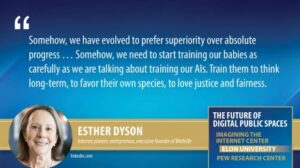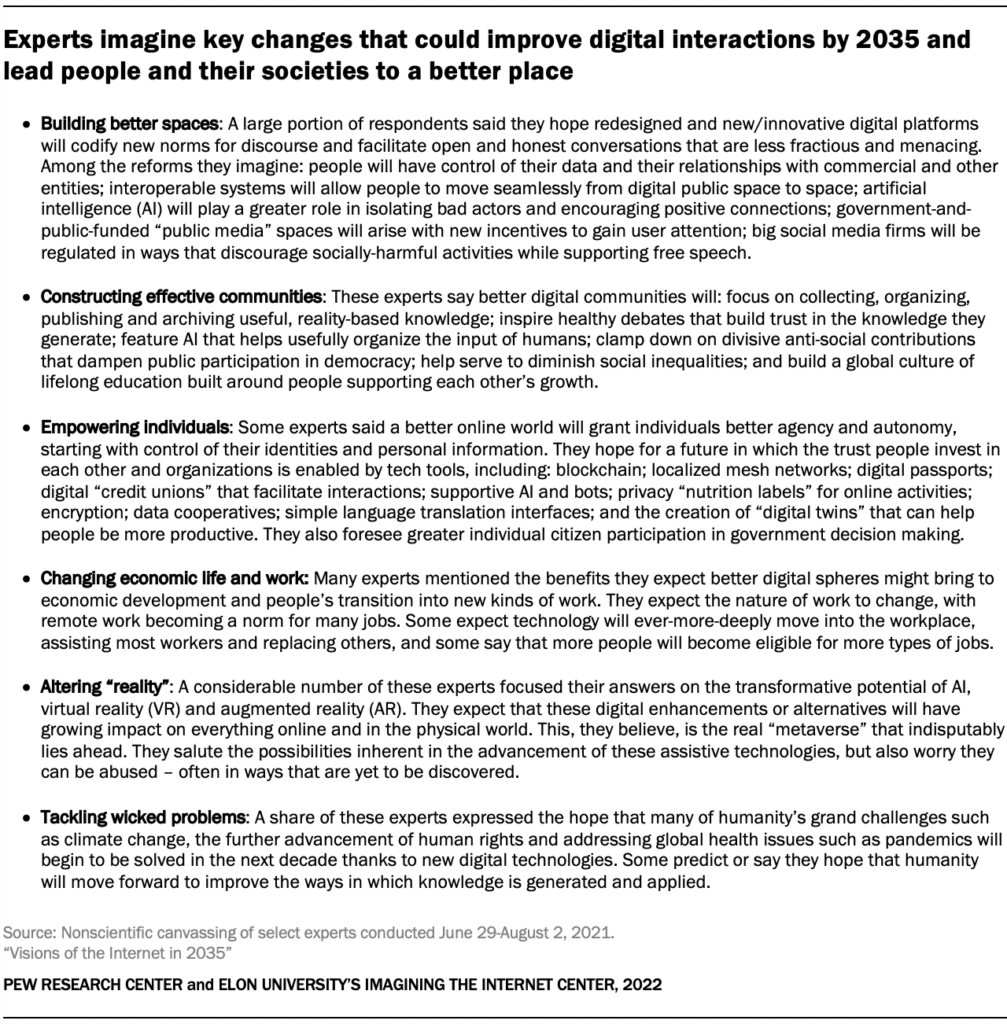 Future digital communities will clamp down on divisive anti-social contributions that dampen public participation in democracy and a Digital Bill of Rights will govern at least a share of the activity that occurs online. Empowering individuals, a better online world will grant individuals better agency and autonomy, starting with control of their identities and personal information, according to tech experts’ Visions of the Internet in 2035, a report from the Pew Research Center.
Future digital communities will clamp down on divisive anti-social contributions that dampen public participation in democracy and a Digital Bill of Rights will govern at least a share of the activity that occurs online. Empowering individuals, a better online world will grant individuals better agency and autonomy, starting with control of their identities and personal information, according to tech experts’ Visions of the Internet in 2035, a report from the Pew Research Center.
Digital democracy will also …
- focus on collecting, organizing, publishing and archiving useful, reality-based knowledge; inspire healthy debates that build trust in the knowledge they generate;
- feature AI that helps usefully organize the input of humans;
- help serve to diminish social inequalities; and
- build a global culture of lifelong education built around people supporting each other’s growth.

NED board member Elaine Donahue
Eileen Donahoe, executive director of the Stanford Global Digital Policy Incubator, wrote, “In a new and improved digital realm in 2035, I hope private sector companies are expected to engage in human rights impact assessments with respect to the design, development and deployment of their digital products and services. In addition, new processes will be developed for democratic governments to engage in human rights impact assessments with respect to their own procurement, use and regulation of digital tools and services.

Part of what may motivate this trend would be global recognition that in digitized society, open democratic governments that protect the human rights of citizens will be stronger than authoritarian-leaning governments that use digital technology to repress citizens, and private sector companies that support democracy and respect human rights will be more successful than those that do not,” adds Donahoe, a National Endowment for Democracy (NED) board member.
Alexander B. Howard, director of the Digital Democracy Project, predicted, “In 2035, I’ll be
able to sit virtually in the gallery of my city, state and national legislatures in a public metaverse,
watching holograms of representatives in debate with the legislators physically present
and participating in drafting bills or oversight hearings in collaborative workspaces that show the impact of proposed changes to codes and regulations, from cost to societal changes.” RTWT








